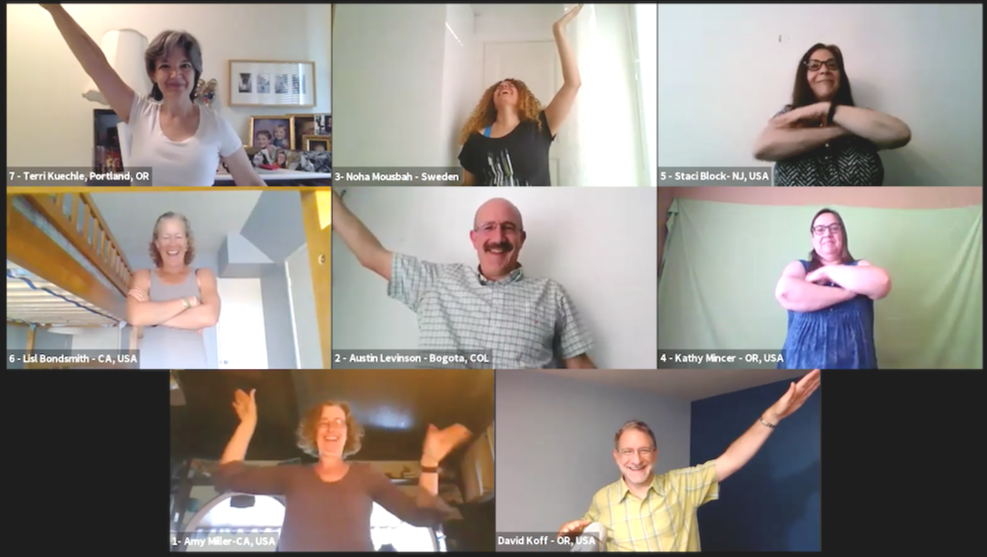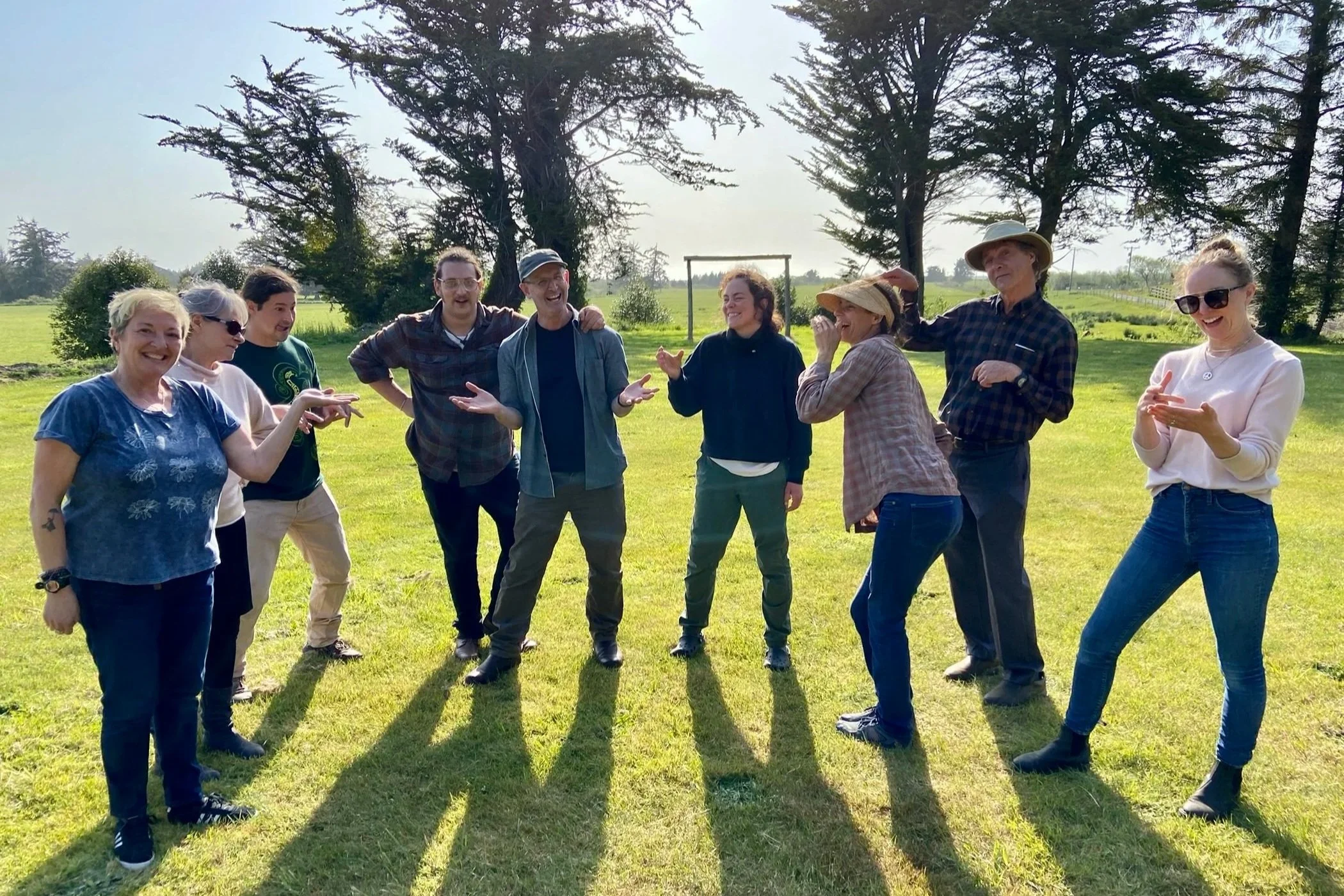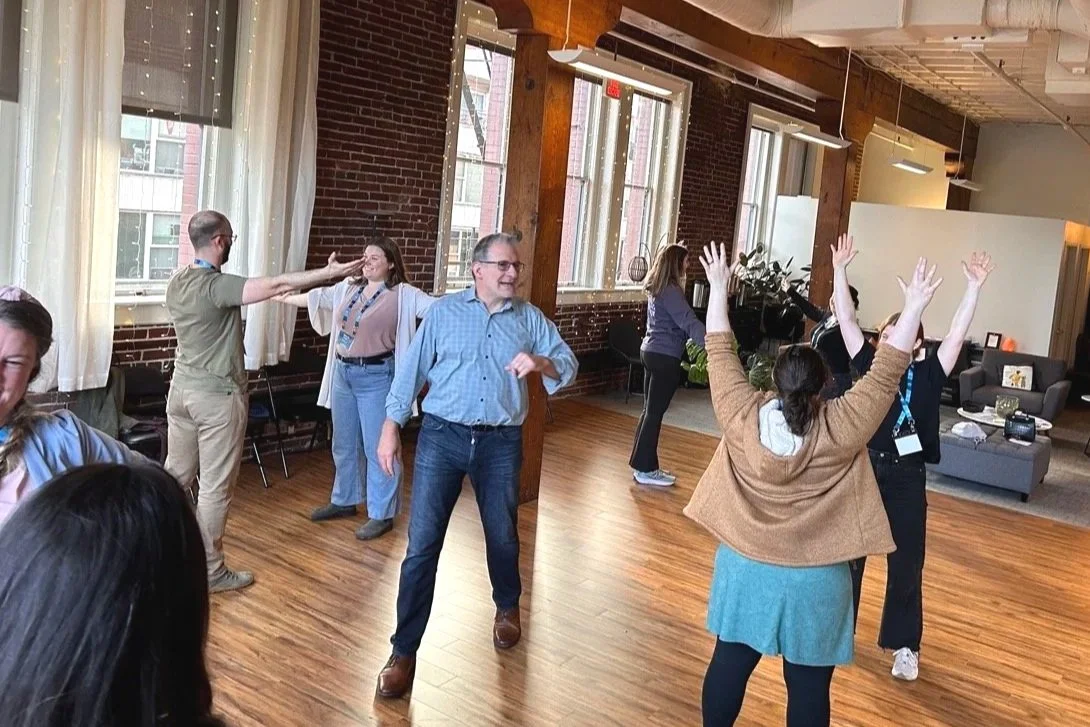Our Philosophy
All the world’s a stage,
And all the men and women merely players;
They have their exits and their entrances;
And one man in his time plays many parts,
His acts being seven ages.— William Shakespeare from “As You Like It”
What Is Improv?
At its core, improvisation is simply acting: unscripted acting. However… that doesn’t mean improv is just for actors. It’s quite the opposite: all of us lovely humans play many roles throughout our lives off of the stage. The approach we use at Change Through Play embraces this simple truth. And we not only bring this philosophy — along with our unique approaches to improv — to our performance classes and workshops, but also to the deep and powerful work we do with children, families, creatives, and our corporate clients.
The curriculum, training, and coaching that we offer are based on five, core principles:
Play Is Our Natural State
Every human that’s born knows how to play. It’s true if we’re blind, deaf, or missing limbs. It’s true regardless of our nationality, skin color, social circles, or religious traditions. Play is a part of the human condition. More importantly, it forms the basis for how we learn. Our experienced staff leverage the power of play to help students and participants learn new and more complex skills. And we do it in the most intuitive ways possible.
Working Together Heals Us
Humans don’t live or function alone: we’re always part of one or more teams. Being a part of a system teaches us humility and inclusion. It also balances our desires to either take or hand over control. Many of the exercises we teach in both performance and applied improvisation leverage shared power, shared leadership, and shared responsibility.
A community Improv workshop in Langlois, Oregon shown doing a tableau game
Improvised mirroring games helps participants learn to give up control
Surrendering Invites Breakthroughs
Most of us are attached to the image that we project into the world. When we improvise, our psychology is on full display, revealing both who we want to be and who we actually are. Our facilitation always emphasizes how letting go of knowing what to say, begins the process of letting go of results and of ego.
Silence Is Powerful
Our culture prioritizes communicating with words. Our classes & workshops teach the other three methods of communication: using our faces, vocal tone, and body language. Whether we know it or not, humans use all four methods of communication 100% of the time. We train people how to notice, understand, and harness these additional skills and we do so using exercises where participants play in near or total silence.
Founder, David Koff running a corporate improv training at the FaBLe conference
David’s middle school students during a powerful tableau game
Our Bodies Have Wisdom
In Western culture, our minds and intellects are elevated above all else. Unfortunately, this means that our physical, emotional, and psychological bodies are rarely connected. We use improvisation to help these three bodies to overlap and inform one another. The approach is physical and requires a mostly silent collaboration as participants tell a story together. The results are often surprising and lead to powerful and personal insights.




